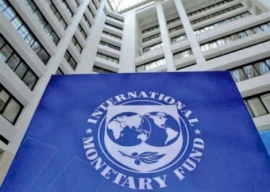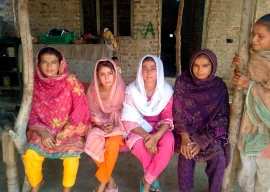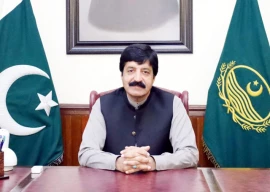
‘Deputy prime minister’ may sound like a fancy title for a new political ally, but it has no constitutional basis.
According to reports emerging from the Pakistan Muslim League-Quaid (PML-Q) and Pakistan Peoples Party (PPP) meetings to form an alliance, Chaudhry Pervaiz Elahi will be made deputy prime minister, PML-Q members will be inducted into the federal cabinet and one of them will be given the position of Pakistan’s permanent representative to the United Nations, currently held by Hussain Haroon.
Even though two prominent party leaders, Faisal Saleh Hayat and Marvi Memon, reportedly spoke out privately against the deal, the PML-Q leadership appears to be going ahead.
Federal Information Minister Firdous Ashiq Awan told The Express Tribune, “The alliance is still not finalised. The conditions they presented have been accepted and the parameters are being defined. The prime minister will be presented with this on Sunday, and he will give his approval.”
When asked about the deputy prime minister position, Awan said, “This was brought up by the PML-Q. It is likely that it will be the position of a senior minister.”
However, in theory and in practice, the position of a deputy prime minister, or senior minister, will be a tall order to manage.
According to constitutional law expert Zain Sheikh, there is currently no provision for either of these positions.
Prime Minister Yousaf Raza Gilani has said that a constitutional amendment will be introduced. Awan, however, refused to speculate whether the PPP had sufficient votes to pass such an amendment.
Another legal question is whether the deputy prime minister will be elected by parliament in the same manner as the prime minister.
The longevity of such a move must also be considered, since creating the position may appease a new ally but make for future turmoil. Sheikh said that in the absence of a constitutional amendment, simply designating someone as a deputy prime minister or a senior minister can be challenged in court.
Talk of a new alliance comes after months of turmoil in PPP’s relationships with the Pakistan Muslim League-Nawaz (PML-N) and the Muttahida Qaumi Movement (MQM), and public squabbles over issues such as economic policy and security.
The PML-Q’s votes in the national and provincial assemblies can help the PPP gain a surer footing. As a counter-move, the PML-N is reportedly building an alliance with religious and nationalist parties and will accept former members who defected to PML-Q.
On the other hand, MQM leader Dr Farooq Sattar told The Express Tribune, “We are nowhere close to even considering rejoining the government until the issues of economy and law and order are addressed.”
While PPP leaders green-lit the decision to open negotiations with the PML-Q, hoping that a possible deal would smooth the passage and implementation of legislation, the PPP and PML-Q will have to appease their respective vote-banks.
On the other hand, former foreign minister Shah Mahmood Qureshi told reporters on Saturday that the move was not in the interest of the people of Pakistan. Awan brushed off Qureshi’s disapproval, saying, “He wasn’t even in the meeting when this was brought up, so he is not aware of the facts.”
Published in The Express Tribune, May 1st, 2011.
1719315628-0/BeFunky-collage-(8)1719315628-0-405x300.webp)


1731329418-0/BeFunky-collage-(39)1731329418-0-165x106.webp)





1731749026-0/Copy-of-Untitled-(3)1731749026-0-270x192.webp)







COMMENTS
Comments are moderated and generally will be posted if they are on-topic and not abusive.
For more information, please see our Comments FAQ